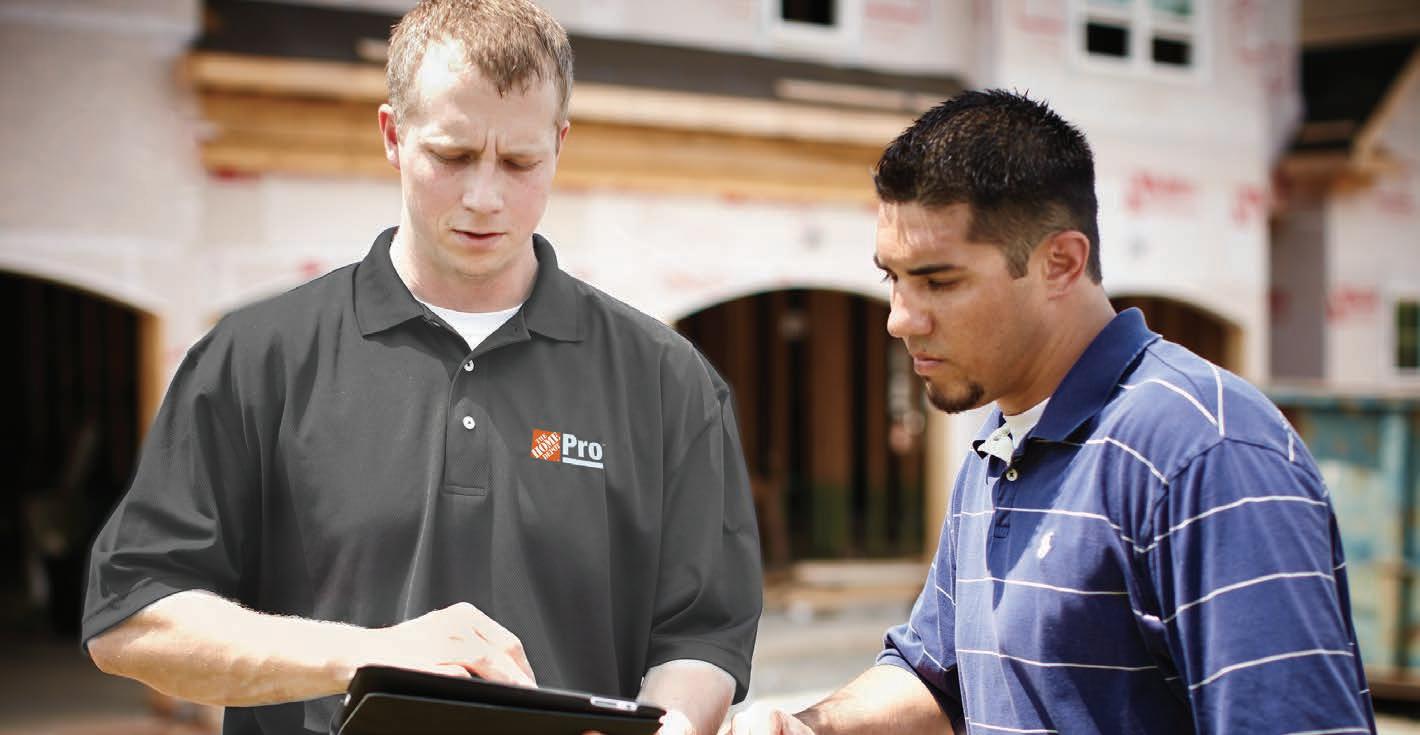
30 minute read
How to Recession-Proof Your Real Estate Business
By Gita Faust
Given the events that have transpired in the first few months of 2020, some people suspect that a recession might be headed our way much earlier than anticipated. Last time we had a recession was in 2008 — the Great Recession — and it was at the same time that the housing bubble burst. Understandably, many people fear what a recession would mean for the real estate industry, especially since it seemed to have been on the up-and-up for the last decade.
Advertisement
Luckily for you, there are ways you can “recessionproof” your business so that it remains standing through both the ups and the downs of the economy, and here are just a few things to keep in mind: • There is always money in real estate. This is something a lot of people fail to comprehend, especially in times of economic crisis. No matter how much the economy is fluctuating (or even taking a nose-dive), there is always money to be made. You just have to know where to look. • Set goals – long- and short-term. It is important for any business to set long-term goals. You need a sense of direction and purpose to motivate you. However, short-term goals can help in a turbulent market; you never know what is going to happen next, so having achievements within your reach helps you stay on track. • Stick with the right strategy at the right time. You really have to analyze the different sectors of the real estate industry and find out who exactly is making money. In 2008, for example, one of the professions still profiting were wholesalers; they were making millions! Create a strategy that will help you make money in times of hardship, too. • Keep one eye on the market. This should be a given. If the economy seems to be sinking or just doing whatever it wants, you need to stay up-to-date. Keep an eye on market trends so you can make sensible moves; do not hold yourself back, but do not overextend yourself either. Risks should be calculated. • Confidence leads to spending. Spending is what drives the economy, and what drives spending is consumer confidence. The Consumer Confidence Index (CCI) is a great economic indicator, so when you are analyzing the market, you should also be keeping track of the CCI. • Cut your losses where you can. Many people struggle with this, whether it is because of extreme optimism or the sunk-cost fallacy. However, if you have negative cash flow on properties, it might be hurting you more than it will eventually (if at all) help you. In a case like that, it may be better to short-sell the property instead of trying to profit from it (Of course, this is only one example; you have other options as well). Know where to get your capital. This is sometimes critical and has the chance to make or break your business during a recession. You might be able to obtain bank capital, institutional capital, private capital — but to get any of these, you have to present yourself well and give these parties a reason to lend out their funds. Develop good, two-way relationships. Interpersonal relationships are one of the most underrated assets in any industry. You want people to know you as a person first and as a real estate professional second; you want to be the person they rely on and the person in the forefront of their mind when it comes to anything real estate-related. You should always be focused on building and maintaining strong professional relationships. Research, research, research. If you invest, flip, rehab, or do anything that requires you to purchase properties, you must do your research, both so you can save yourself and so you can benefit. Sometimes you will find properties that are mispriced — a 2,000 square-foot property could be labeled and sold as a 1,000 square-foot property or vice versa — so look into everything before you actually commit. Add the right people to your team. This is critical to surviving the course of an economic recession. You want people on whom you can count during times of prosperity and times of hardship. It is also important to keep in mind
how much you want to be involved in the action; if you want to take a more passive role, then you need somebody in charge who can get the work done. • Ensure it is financeable. Know your clients — know who you want to sell to and know that they will want to buy from you. For example, if you want to purchase and sell single-family homes, you need to make sure the homes have what single families would want: a neat yard, three bedrooms, two bathrooms, etc. • Have a safety net in place. In the worst-case scenario, you will be forced to rely on a financial safety net — so you better have one in place.
Whether it is derived from an emergency fund, equity in one of your assets, or loans, make sure that you have a plan in case things do not work out in your favor.
Times of uncertainty like these can be scary. The best thing you can do is be prepared at all times. I personally like to plan based upon the idea, “Expect the best. Prepare for the worst.” You should never lose hope, even if it all seems hopeless — and you can instill a little bit more of that hope by preparing. If you want to recession-proof your real estate business and make sure that it is still standing strong through the peaks and troughs of the business cycle, then make sure you implement the tips listed above.
Gita Faust is the founder & CEO of HammerZen, which helps businesses save time & money by keeping track of The Home Depot purchases and efficiently importing receipts and statements into QuickBooks. National REIA members receive discounts on QuickBooks services and software. Learn more by visiting www.hammerzen.com/ nreia.

With National REIAU, we have made learning from some of the best fast, easy and inexpensive. National REIAU delivers great low-cost, high-quality investor training on exactly the subject you want, exactly when you want it.

people who did not have their money there on the first when it was supposed to be. Of course, they all had good excuses. I’ve yet to hear a tenant say “Well, I just really didn’t feel like paying you this month.” Their excuses, however, carried alarmingly little weight with the institutions or individuals who received my underlying payment(s), a fact which meant that I needed to make payments out of pocket, and collect from my tenants/buyers as I was able. This is an exercise, I can assure you, engineered to elevate the blood pressure, and shorten the lifespan of the unsuspecting, cash-poor investor. 2. Buying houses isn’t ‘cool’
Ok. Maybe it is cool. There are few absolutes in life. However, what I’m referring to is the over-eagerness some of us have to get our first few deals under our belt. Now granted, an “itchy trigger finger” is easier to cure than the old “butt print in the recliner,” but it is no less of a liability for its being the lesser of two evils.
I moved out of an apartment and into my first singlefamily house in 2003. I was now a “homeowner.” Within a year, I bought my first investment property. To me, buying houses was “cool.” The newness hadn’t worn off yet. I could stick my chest out a little farther than before. Therefore, I overlooked a number of factors which I should have considered more carefully. My first house was in a bad neighborhood. My first investment property was across the street (almost literally, it was across and one house over). This was also a direct violation of lesson number nine. I never could sell it; it attracted only the most horrible leaseoption candidates, and the house continued to punish me for three years — until someone was kind enough to set it on fire in 2007 (no, it was not me). No one was hurt, and as I suspect that the fire-starters were the tenants I had just evicted. All occupants were safely out of harm’s way. 3. Lease-options don’t cash out
OK, you got me again. Some of them do. Before the subprime shakeout, mortgage meltdown, or whatever term history will ultimately attach to the fruit of the stupidity that ran rampant throughout the mortgage “boom,” the nationwide statistic for lease-option tenant/buyers who actually exercised their option was under 5 percent. I’m pretty sure that figure would be much lower today in our current lending climate.
My limited experience tends to confirm this. Over my career spanning maybe 25 tenant/buyers, only one of them has ever cashed me out.
One time, and one time only, did the vehicle of leaseoptions transport me to that magical place where equity (through alchemical means unknown) may be transmuted into cash without the simultaneous creation of an equivalent debt. I had bought the house three years before and was on my third tenant/buyer. All things taken together, I worked pretty darned hard for that check.
The problem I ran into was the impression, gleaned from a variety of real estate “gurus,” that a leaseoption was as good as a sale, and that you will be cashed out at your inflated sales price in the not-toodistant future. This being the case, why worry about buying a house with very little equity, or where the monthly spread between your incoming and outgoing payments couldn’t feed a third-world orphan? You’ll be rich when your tenant/buyers exercise their options by getting a new loan, as they’ve solemnly sworn to you that they’ll do once they’ve tidied up their credit a bit. 4. Home warranties
How I wish I’d know about these babies at the start of my investing career. I’m sure many good companies provide them, but I always used American Home Shield. With a multi-property discount, it comes out to about $330 per year per property, which they will even break up and let you pay monthly for less than $28 per month. Can you say “Make your tenant pay for it?”
Now, I can already hear some of you asking, “Can’t I just use a lease-option that passes all major repairs on to my tenant/buyer and make them pay for it?” 20

Sure, you can. However, that can be a double-edged sword, as you will inevitably end up getting houses back with buckets under the sink or things ducttaped together to avoid the tenant having to pony up and pay a contractor to fix it. AHS does not even inspect the house before issuing a warranty, and will do anything from re-plumb the house, to replace the furnace if necessary. All for the price of a service call. How many unanticipated $2,500 furnaces does it take to make the warranty pay for itself? I’ve had to replace two out of pocket, and each one worked perfectly well when I tested it upon purchasing the property. 5. Home inspections
I had two mentors when I got started in the creative real estate business. One of them was an interpersonal and financial genius, who could reduce an incredibly complex situation with multiple sets of numbers into its simplest, most logical solution, almost instantly. The other one, while also a brilliant guy, had as his claim to fame the fact that he had worked at or owned construction companies for the past 30 years. I’ll bet Warren walked me through 30 houses, pointing out every potential problem, and teaching me what to watch out for. With that level of detailed instruction, it would surely be foolish to pay $350 for a home inspection before closing, wouldn’t it? After all, I was now an “expert.” Wrong, wrong, wrong. I don’t’ think I ever bought a house where I did not miss something of decent significance, and sometimes the errors ran into the thousands and thousands of dollars. I could not have reaped a better return on those skipped $350 investments with a jockey’s eye for horseflesh, and a pocket full of four-leaf clovers tucked away in my lucky rabbit’s foot bag. 6. Tenants are guilty until proven innocent “But this is America,” you say. “Isn’t everyone innocent until proven guilty??” Folks, every time I have gone against my training and better judgment and trusted a tenant, I have lived to regret it. The check is not in the mail. They are not moving out peaceably, so “you can just save yourself the hassle of having to evict us.” They are not “cleaning the house like new on the way out.” The milk of human kindness is a wonderful thing, but it quickly sours in your tenant’s refrigerator. 7. Listen to people who are smarter than you
Boy, did I ever have a hard time with this one. My mentor advised me against buying the first three investment properties that I ultimately ended up buying. “Easy for him to say,” I rationalized, “he’s got houses coming out of his ears and I hardly have any!” I lived to regret each one. From time to time I’ll be listening to an audio training CD (Ron Legrand, Lou Brown, etc.) from years ago, and for maybe the 20th time I’ll hear a piece of advice that, had I heeded it, would have saved me a good deal of time, money, and grief. 8. Have an attorney prepare/review ALL of your forms and paperwork
I like to think of myself as a pretty smart guy. Starting with top-notch forms like Lou Brown’s, there’s no reason to go to the “extra expense” of paying an attorney to make sure that each element of each transaction is watertight, is there?
Wrong, wrong, and wrong again. On one jointventure deal, I “saved” myself a couple of hundred bucks by taking a “guru’s” joint venture agreement and customizing it for the transaction myself, rather than paying an attorney. When the “you know what” hit the fan during the exit strategy, it became painfully obvious that my paperwork was woefully inadequate for the task at hand. That is not good news, as most courts, when dealing with vagueness in contracts, tend to side against the person who drafted the contract (in other words, against me). I knew a losing battle when I saw one, so settled for a pitifully small amount and moved on. Net cost to me for being Mr. Smart Guy and doing my own paperwork: around $40,000. That, my friend; is a hard way to learn a lesson. 9. Stay out of marginal neighborhoods
“But the deals look so good right on the other side of the tracks,” you say. “You can hardly tell the difference between this house and the one on that other street that costs 30 percent more.” Your tenants and buyers, my friend, will know the difference. They will not need any advanced real estate training, an appraisal, or a list of comparable sales. Good tenants and good buyers know where they do and do not want to live, and you will violate this rule at your peril. If you would not want your 15-year-old daughter staying the night at a friend’s house at this location, I strongly suggest you keep looking.
As I leave you, I sincerely hope that these lessons that I wish I could’ve shared with my former self will act as a dose of preventative medicine in your business career, the presence of which should save you many an Advil, and countless sleepless nights.
Lou Gimbutis, owner of Property Solutions, LLC (www. soldcarolina.com) has been buying and selling houses full-time since 2004. He serves as Director of Education for the Metrolina Real Estate Investors Association.
driver received a cash kick back before leaving (I actually saw this) for taking the group there. I have also been told by independent drivers that most of the time, the contract drivers are related by family to some of the “STORES” where we stopped.
As we headed to some of our requested places we wanted to see, our driver told us of a place that had been damaged by a storm but since it was not a boat-sponsored location, it was slowly rebuilding back to being a local favorite. I have found that cruise-sponsored places receive help and money for repairs a lot faster so boats can resume making money from the excursions. The place where we went had no such help. The main attraction were small to giant sea turtles that you could feed from the shore as well as swim with in a lagoon. It was a very nice area but you could easily tell that it was damaged from strong winds. It also had some huts that were used for offering barbecue buffet as part of the experience. There were three buffet huts but only one was open. Then we saw the area had several shower huts and bathrooms along the 100-foot-wide lagoon, but only one hut was open. A little further walk revealed several varieties of sharks swimming in a protected area where visitors were this anywhere else! this network. allowed to feed them. This was exciting being able to feed, film and watch the sharks up close. We also talked to the locals working there and got a lot of background information about the area.
As I have been trying to point out, real estate deals pop up everywhere without warning. You never know when an opportunity will present itself, especially when you least expect it. None of us paid too much attention as we first entered the lengthy dirt road leading to the venue, but there was a “for sale” sign just outside three or four mediocre houses that were shrouded with line-strung laundry about a quarter mile before we arrived. As it turns out, the people selling the houses were also the ones who owned the property that operated the venue with the turtle and shark experience. The bad storm had knocked down the other for-sale signs showing that the whole venue was actually for sale, as the owners did not have the resources to rebuild. They got the place up and running just enough to buy food and pay bills but were overwhelmed with the longer-term prospect of fixing it back up. Now their option was just to sell it all!
Obviously, sirens and light bulbs were going off in our heads trying to figure out exactly what these people needed in order for there to be a winning situation for both buyer and seller. Investor mode had kicked in and ideas started running through our heads. So, we now know to get a plat of the land to see just how much there was. There were at least 100 acres or more. We also needed to find out if you can own property outright, lease it and/or what other restrictions there are for acquiring real estate in Fiji.
Now keep in mind that there are so many ways this can be investigated for different uses. Would this be something where investors just fix the venue and use it for a wildlife attraction? Most people don’t automatically think this, but it is potentially something to get under contract and maybe offer to a hotel chain, for example. Do you get interested people to come in and build luxury houses or even a subdivision? There are many options — hotels, condos, restaurants, shopping, retail, even mixed use. Do you think that the distressed owners would see “the win” for both sides if they walked away from a tough situation with a life-changing amount of money that would take care them for the rest of their lives?
Now let me ask you this: Have I changed even just a little bit about how you may look at things on your next trip or vacation? Do you see that opportunity is everywhere and most people walk or drive right by it never knowing your life could be changed in a glance of a hidden sign on a tree? Remember, this was a chance-sighting based on the fact that we decided not to use a cruise ship excursion and went with hiring a lower cost local — who took us to places that were really exotic and not tourist traps. I am writing this as we are still doing our due diligence, but I will definitely keep anyone updated who follows my writings and real estate techniques. Though my primary expertise has always been in the fix-and-flip scenario, I have over three decades of real estate experience and it just keeps growing! Remember, never stop learning and always keep an open mind — especially
Pete Youngs, also known as “Mr. Rehab,” is a national speaker on rehabbing homes for up to 50 percent off. He does seminars and bus trips promoting his training system called SWAT (Simple Ways And Techniques). He has been a contractor/investor for over 25 years. Learn more about him at PeteYoungs.com.
UNITING INVESTORS


What is Uniting Investors?
Uniting Investors is an online community brought together by the alliance of The National Real Estate Investors Association, American Rental Property Owners and Landlords Association, the Real Estate Investors Funding Association, and the National Note Buyers Association. Together, these associations have chosen to create an environment where their members can both connect with one another, as well as learn from those with more experience. Visit www.UnitingInvestors.org to sign up today.
Bene ts of Joining Uniting Investors?
Backed by the leading associations in their respective divisions of the real estate industry.

Authorities with years of experience in the field post their knowledge for our members to share
Don’t see the information you’re looking for? Post it in the community and have it answered by your peers; answers will be rated for accuracy.
New, valuable information released weekly to our members in our resource library. You can’t get
Connecting to other real estate investors across the US gives you a unique perspective and advantage; you can share best practices with one another as easily as sharing a picture on social media, but nowhere else will you find when traveling.

well as active or inactive status and administrative suspensions for not paying licensing fees or completing required continuing education. Rule 4: Size Does Matter
The fourth rule I follow in hiring a lawyer is that size of the law firm matters. I may be biased in this regard, but I think the largest law firms with the most lawyers available to work, at the corresponding highest rates, are best suited for the really big companies with really big and complex legal problems, requiring experts in several different fields of law to work on the same case together. Sole practitioners in the suburbs, conversely, are best suited to the client with a small and simple legal issue who doesn’t want to spend much and whose problem is general, since the sole practitioner often has to do a little bit of everything to keep the doors open, and doesn’t have the opportunity to develop a lot of expertise in a single specialized area.
In between these extremes are small boutique firms with several lawyers concentrating their practice in single areas or several related areas requiring some level of volume to build expertise, and mid- sized firms which are really the combination of several boutique law firms with different types of practice into a single firm. Since most firms are either in the process of growing, shrinking, combining or separating at some point every few years, and individuals move from firm to firm, there are no numbers, types or individual lawyers other than the lawyer you hire on whom you can count to be with the firm or on your case from beginning to end, and the longer the process the more this is true.
Make sure you meet the lead attorney on your case and as many other staff members who are assisting on your file as you can, and know who will do what and at what rates. See if the firm has a free consultation available for this purpose. Make sure you also know when two or more people will be working together and billing simultaneously for their work. If three lawyers are working together at rates over $200 or $300 per hour, it doesn’t take long for the bill to add up.
For my real estate clients looking for real estate lawyers in other jurisdictions, I try to find an AV rated lawyer from a small or boutique firm, but not a sole practitioner, and not a big law firm. This is for the same reason you don’t need or want to pay your brain surgeon at his rates to take your blood pressure, but you want him or her available if you need brain surgery. You don’t need or want to pay your dentist to clean your teeth. The nurse can take your blood pressure; the dental hygienist can clean your teeth; and the doctor or dentist checks to make sure the job was done correctly.
In a law office, there are secretaries who can do the secretarial work, and paralegals and student law clerks to do work beyond the level of the secretaries, but not requiring a license to practice law. However, a license is required to give any legal advice, and almost always to go to court for a client. But every piece of advice, even on a complex case, isn’t the most complicated advice, and every appearance in court isn’t the trial of the case. Having a less experienced lawyer as well as secretaries, paralegals and law clerks available to work on a case can help to match the right price level of assistance to the job to be done.
In the end, this practice at least in theory results in the senior lawyer being able to provide the case strategy, and get the assistance of others on the legal team at lower hourly rates to provide the services more effectively. If it takes the junior staff too long to complete the tasks assigned, however, or if the senior lawyer has to spend too much billable time supervising the work, the savings can be reduced or eliminated. Rule 5: Understand How Billing Works
This brings me to my fifth rule. This is after you hire a law firm. Make sure you know the basis and rates for your fees, what costs will be charged in addition to fees, and how often you will be billed. Then watch your billing to make sure it matches. New clients should get an engagement letter describing the terms of their financial relationship with their lawyers soon after becoming clients. Then review any statements you receive quickly and ask any questions you have promptly after you receive each bill. Does the bill match your understanding from the engagement? If not, why not? Write an email or letter and talk to someone about your questions as quickly as possible. Remember hourly rates alone are not the whole story on an hourly bill. A lawyer working more hours at a lower rate can cost a client more than a lawyer working fewer hours at a higher rate. You need to make sure you receive the right balance.
Firms working on an hourly basis generally keep track of each professional’s time daily and send bills monthly. Firms working on a flat fee generally bill in either the beginning by retainer or the end when work is done, and don’t account as meticulously for their time. Firms working on a contingency basis often do not send any record of the actual time spent. If you knew they spent four hours on your case to make a $10,000 fee, you might get upset, since you don’t see the hundred hours they may have spent on the last case to receive no fee at all. Rule 6: Know What Will Be Done When
My sixth rule is a good way to keep your costs down on hourly cases, and not be a nuisance to lawyers or their staff on contingent or flat fee matters, while still making sure the work you need is being done. This rule is to know what will be done when, and watch for it. This could be as simple as watching the mail or email for a copy of a letter or contract draft or pleading, or it could require logging on to a court docket online to watch everything a civil, criminal, bankruptcy or family lawyer is doing on your behalf, and what other lawyers involved in the same case are doing. Track your case and follow up by email if you can when something is due and not done. Copy the senior lawyer on the case and the working staff, and let them know you don’t want to be billed for them to read or respond to your email. You just want

them to send a copy of the work that is due to be completed. You may get the thing you were looking for, you may get an explanation of why it isn’t done and when it will be, or you may hear nothing at all.
Unless a statute of limitations or an important deadline of another nature is looming, the only true cause for concern is the lack of any response. Any good law firm will be busy, and I believe a busy firm is more cost effective for you than a firm where professionals are sitting, waiting for your calls and to do work on your files. If a firm has too much staff for the work available, the employees will tend to spend more time than is necessary on a given case, and you will have very prompt service at the price of being more expensive. If a firm is busy, and its staff has no problem finding enough work to keep busy and reach their billing objectives to earn their pay, then you will get the work needed on your file without additional time being wasted on unnecessary additional work. It may not be done early, but it won’t be done late, and you will get the service for which you bargained.
If you don’t hear back from the firm at all, you need to find out why. Did a lawyer leave? Don’t they want your case? Are they too busy this week, which is usually OK, and happens in any firm because legal work never flows evenly from day to day? Are they too busy for a long time to get to your work? That can be a more serious problem if they don’t have a plan to get the right staff in place to deal with the increasing volume of work they face. For a lawyer, it is both a relief and a problem for his or her law firm to have more work than it can handle. The work means job and income security, but also means it may be time to commit to more staff. Another secretary, law clerk or lawyer means an ongoing commitment to higher overhead, and the need to bring in even more new work on a regular basis. Those steps should not be taken lightly, but if a law firm doesn’t continue to match its staff to changing workload, it either won’t be able to keep clients happy as it grows, or won’t be able to keep existing clients happy as it shrinks. Feedback on client happiness is often too little, too late, so providing that feedback can not only help your lawyer to handle your case better, but can also help your lawyer to manage his or her practice more efficiently for all the firm’s clients. Rule 7: Pay as Agreed and on Time
My seventh and last rule is to pay what you agree to when you agree to, if you expect to get the service you want now and in the future. If you can’t do that, come as close as you can to what you are supposed to pay, and communicate proactively about how you plan to pay the rest. Real estate investors have been through a rough credit market, and many have been unable to pay their bills in full every month. Lawyers will work with those issues as much as we can, but if last month’s bills aren’t paid to us in full by next month, we still have to pay staff, rent, insurance and other overhead, as well as pay ourselves. We have to make up the difference somehow. The easiest way is to devote more effort this month to the files of clients whom we anticipate will pay this month and next month, and less effort to the files of clients whom we do not expect to pay for a while. That way, more of this month’s time is paid next month. We can borrow on lines of credit to carry unpaid bills, but if we do too much of that, we will exhaust our own credit to finance clients. We can raise rates on all clients to cover the cost of those who don’t pay on time, or insist on full retainers from every client for all work to be done, but either of those practices penalizes the clients who plan to and do pay when they should.
Eventually, we have to stop doing work for clients who don’t pay, and spend time on collecting those fees. That leads to poor client relations and wasted time for whoever is involved in the collection process. If you review your legal bills when you receive them, discuss issues with those bills promptly, and pay what you owe timely, you will be a good client and your lawyers will be happy to handle your legal work now and into the future. If you don’t do these things, you will have to move from law firm to law firm, go through a learning curve with new people for each new problem, and in the end probably pay more for legal services than you would otherwise.
Bradley S. Dornish is a licensed attorney, title insurance agent and real estate instructor in Pennsylvania. He can be reached at bdornish@dornish.net.


NREIA MEMBERS EARN 2% CASH BACK* ON EVERY PURCHASE

HOW DOERS GET MORE DONE
The Home Depot has the tools to help you get more done faster. With convenient shopping, delivery how you need it, dedicated Pro support and a cash-back rebate program*, we help you reach your business goals. Plus, NREIA members receive Gold Tier Paint Rewards with 20% off paints, stains and primers every day.
Reach out to NREIA or your local chapter to learn how you can start earning cash back today.
Learn more at homedepot.com/c/Pro_Xtra.
*Participating members with semiannual net purchases of more than $5,000 receive a 2% rebate from The Home Depot based on spend on registered forms of payment in Pro Xtra and tied to the NREIA program. Rebate periods are January 1- June 30 and July 1 - December 31. Rebate checks are issued 60 days after the rebate period ends. Restrictions apply. Please call 1-866-333-3551 or homedepot.nationalreia.org for further details. Pro Xtra Paint Rewards is a sub-program of the Pro Xtra Program. Pro Xtra Paint Rewards Qualifying Purchases will be tracked during the Program Period and include select The Home Depot Paint department in-store purchases and online purchases from The Home Depot websites, see https://www.homedepot.com/c/ProXtra_TermsandConditions for details.








